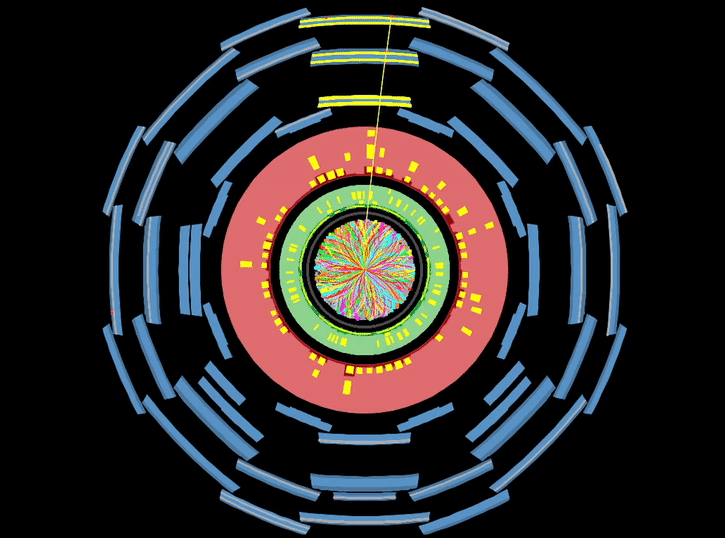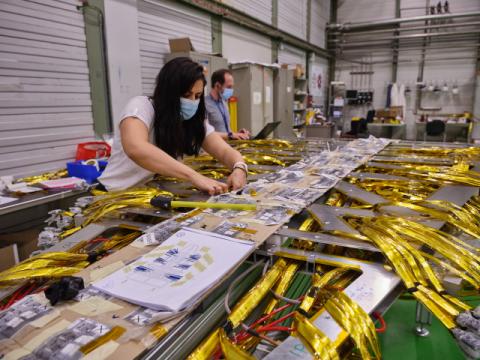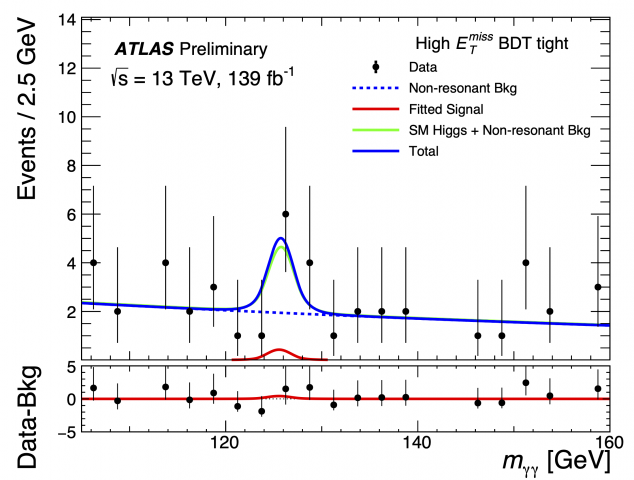Access to Collaboration Site and Physics Results
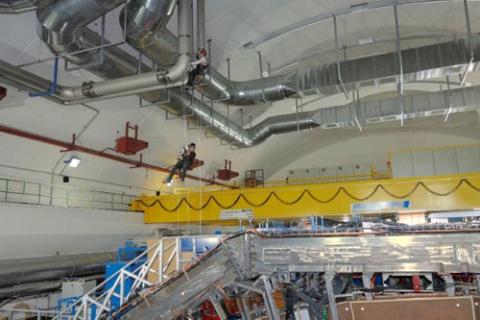
Intrepid Rappellers Descend Into ATLAS Cavern
– It could be a scene from a James Bond movie. But this action shot of two intrepid rappellers (abseilers) was in fact taken in the ATLAS experimental cavern one night in December. François Butin, the ATLAS experimental area manager, tells the story behind the photograph.Read more →
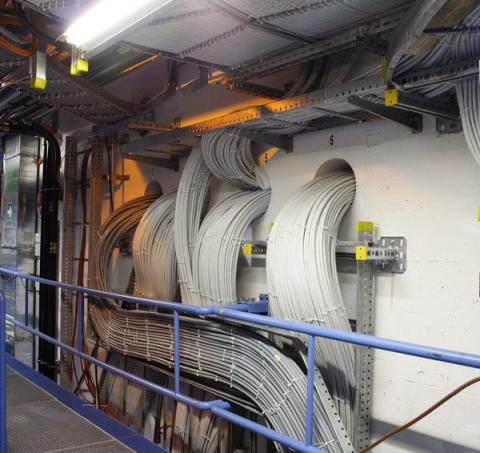
Cables: The “blood vessels” of ATLAS
– The cables within the ATLAS detector may be thought of as the blood vessels and nervous system of the experiment; they carry power to the detector, they deliver messages to control its functions and they relay the data taken, ready for analysis. Just as blood vessels and nerves criss–cross and connect the organs and tissues of the human body, cables penetrate the whole of the ATLAS volume, reaching each and every one of its elements.Read more →
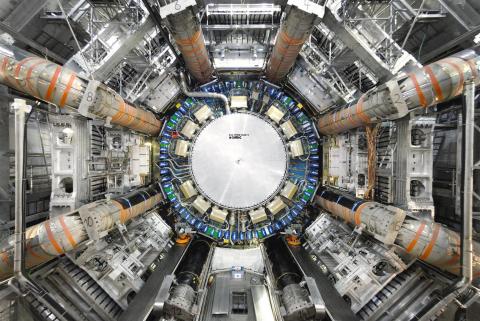
Dress Rehearsal for ATLAS debut
– Dave Charlton and his team have a mammoth job on their hands; Charlton has been tasked with coordinating the Full Dress Rehearsal (FDR) of the computing and data analysis processes of the ATLAS experiment, a run–through which he describes as "essential, almost as much as ensuring the detector itself actually works".Read more →
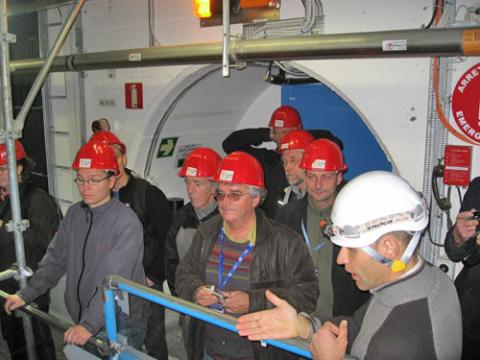
Norwegian teachers visit ATLAS
– "It's amazing that you have to build something so huge to measure such extremely small things," said Tom Christiansen from Telemark in Norway, after visiting the ATLAS cavern. His sentiment about the size of the ATLAS detector was shared by the thirty–one other physics teachers who, together with Tom, attended the first Norwegian Teacher Programme run at CERN, in November 2007.Read more →
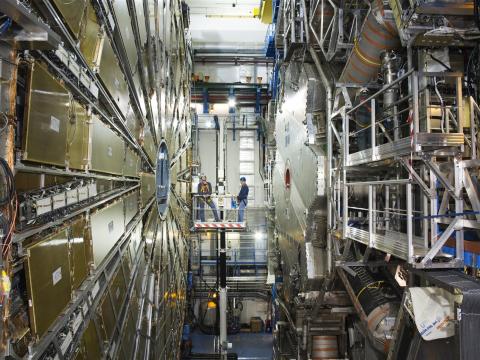
Progress on Toroid Magnets
– The magnets on either end of the ATLAS detector (called end–cap toroid magnets) dominated November’s work in the experimental cavern. The ATLAS magnet team took a significant step towards finishing work on the ATLAS detector as testing of the magnets began.Read more →
The pixels find their way to the heart of ATLAS
– Leading up to the lowering of the pixel detector into the ATLAS cavern, final preparations were proceeding quickly.Read more →
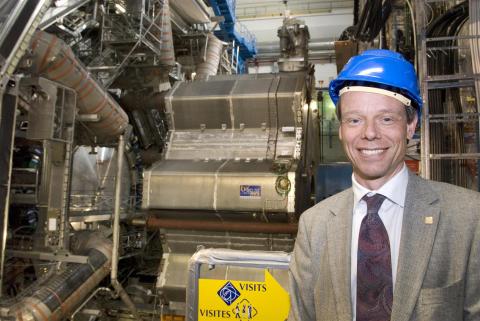
ESA/NASA astronaut Christer Fuglesang visits the ATLAS cavern
– On 14 June, 2007, ESA/NASA astronaut Christer Fuglesang visited the ATLAS cavern. A former CERN fellow working on ATLAS, Christer went on to become the first Swedish astronaut and participated in the STS-116 Space Shuttle mission to the International Space Station last December.Read more →
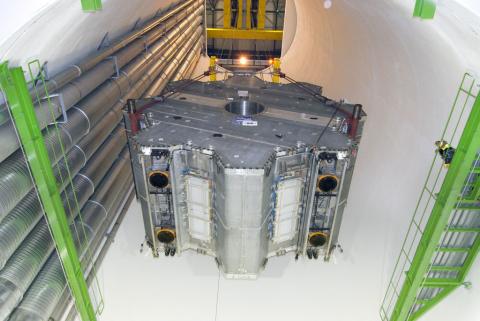
The complex and spectacular lowering into the cavern of the huge end-cap toroid magnet on side A
– On 13 June 2007 the first of two giant toroid magnet end-caps was lowered into the ATLAS cavern on the A side. This complex and spectacular operation was completely successful.Read more →
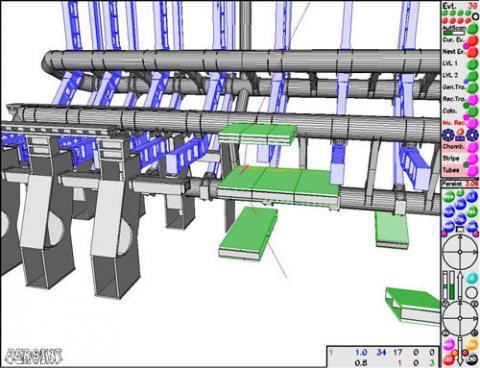
Triggering and measuring bent cosmic muon tracks with the muon spectrometer barrel for the first time
– Data have recently been collected with the toroidal magnetic field will provide for the first time the measurement of the cosmic ray muons' momenta in the ATLAS experiment and allow studies on trigger optimization, chamber calibration, chamber alignment and magnetic field maps. More than one million events were acquired. They are now being analyzed by enthusiastic members of the collaboration.Read more →
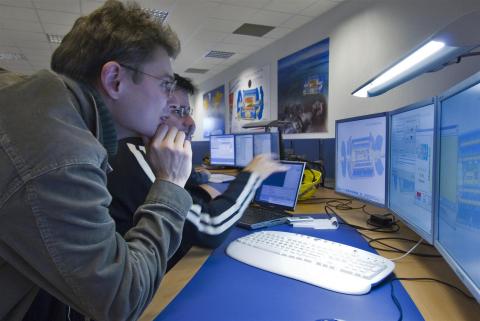
Development of the ATLAS control room
– The ATLAS control room will become the brain of the detector operations. At the moment six of the final fifteen stations are already in place.Read more →


